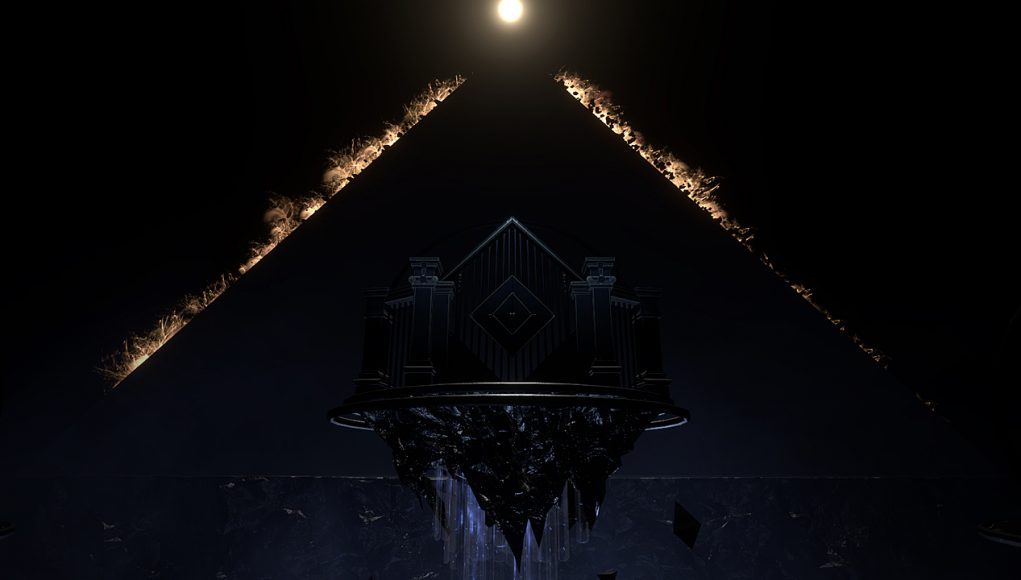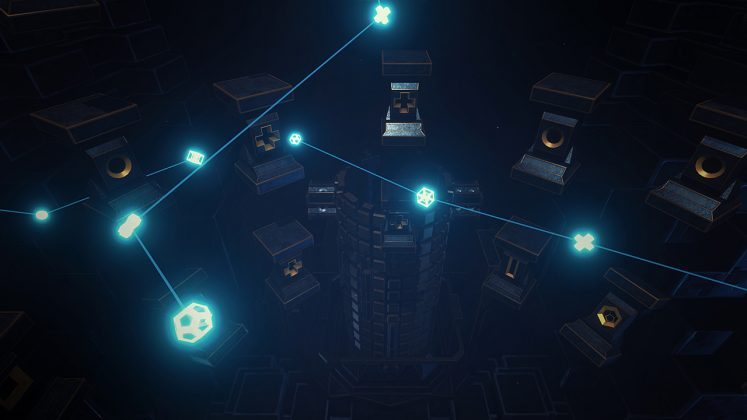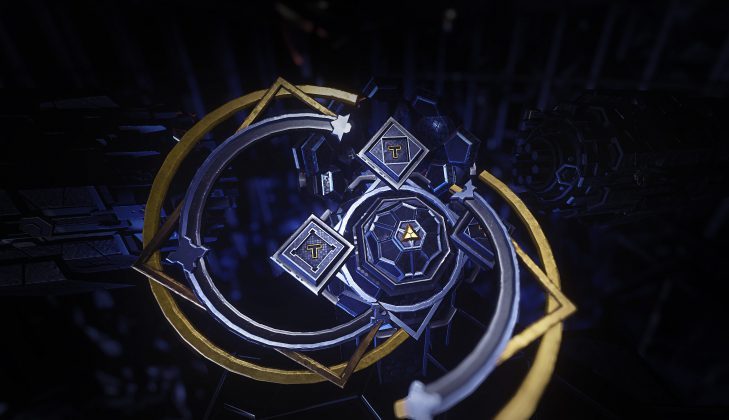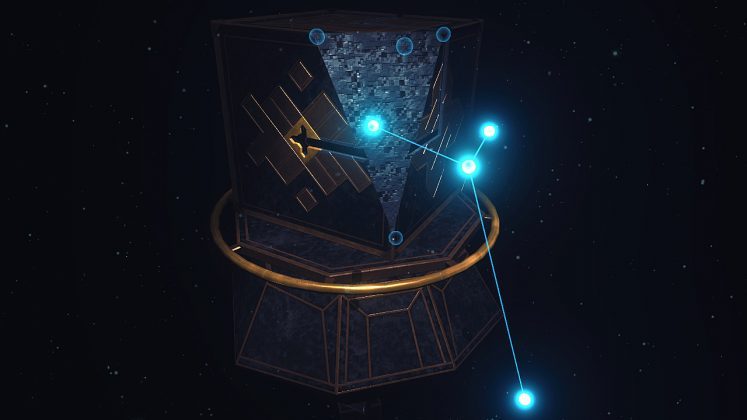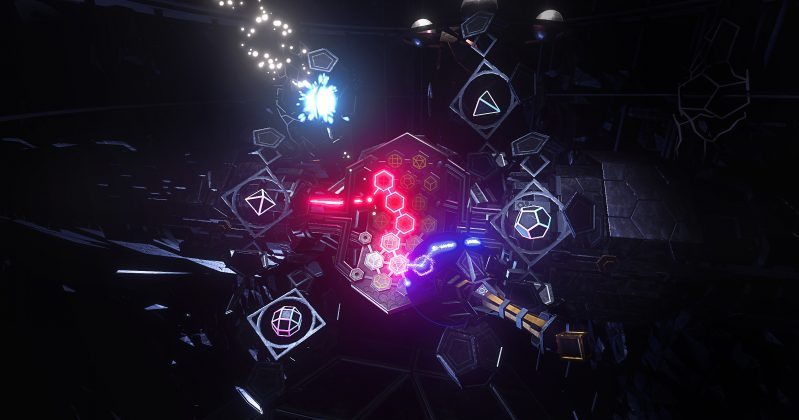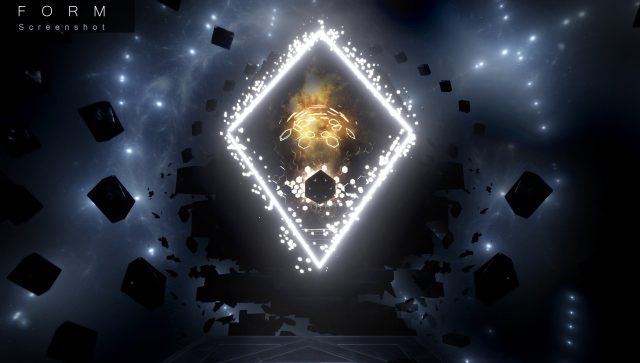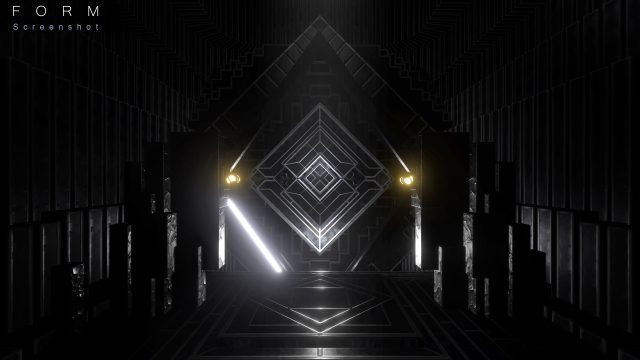The word ‘surreal’ invariably falls short when it comes to trying to lift the shroud surrounding the VR first-person puzzler FORM. Transporting you to a strange inner universe via an enigmatic black obelisk, you experience what it must feel like to make contact with a higher intelligence, with its intense interlocking geometric constructions and imposing, dream-like architecture—FORM is an unexpected delight for anyone looking for something truly out of the ordinary.
FORM Details:
Developer: Charm Games
Available On: Steam (HTC Vive), Oculus Touch (Coming Soon) PSVR (Coming 2018)
Reviewed On: HTC Vive
Release Date: June 1, 2017
Gameplay
It’s another day on the job for Dr. Devin Eli, a brilliant physicist working at a special research facility in the Alaskan wilderness. Housed at the facility is ‘The Obelisk’, a seemingly alien artifact emanating a mysterious signal. Spiriting you away into an environment like none other on earth, a place where thoughts manifest visually and the machinations of the human mind are displayed as complex machines, it’s your job to uncover the secrets of The Obelisk as you journey further to the center of the human mind and the alternative realities that reside within.
FORM shows a command of the medium that few have grasped with such clear intention. Every puzzle is an alien relic that demands your curiosity and experimentation. Every puzzle, while mysterious in its ultimate function, always injects you with the feeling that you’ve actually accomplished something wonderful. It’s like stepping into a machine of pure novelty, and it manages to deliver its intuitive puzzles without the need of a tutorial, i.e. no condescending robot voice guiding you through the world.
Puzzles are mostly spatial in nature, meaning you’ll be slotting glowing geometric shapes into manifolds, opening up mysterious machines and pulling levers. If you’re looking for a super hard puzzler though, FORM may let you down in that aspect. Although it would be hard to walk away without some appreciation for the visual complexity and unique variety of the puzzles displayed before you, there are some moments when I wished for a real stumper.
In the end, the story left me feeling a bit confused, probably necessitating another playthrough altogether to fully grasp. Considering it took about an hour for me to play from start to finish, it’s not unthinkable that even after solving all the puzzles that you’d want to play again to understand the intentionality behind them, and understand exactly what you’re reconnecting and discovering. In any case, I attribute it to the game robbing my attention with all of its strange and fulfilling abstractions.
Immersion and Comfort
Like a lucid dream, or being under the influence of a psychedelic, the visual complexity is really something to behold. The world morphs around you, drawing your gaze further and further, and you have to tell yourself to not give into the awe to complete the puzzles. Its humbling to think it all lives inside the human brain and you can access it (and interact with it) just by putting on a VR headset.
At some moments, when the world was whirring around me and dozens of tiny puzzle pieces were floating in front of my face, I did feel my computer choke a bit (reviewed on i7-6700, GTX 1080, 16 GB RAM). This may be helped somewhat by turning down the graphical intensity in the settings, although the pre-release copy didn’t include access to the settings menu, so we can’t say for sure. These moments were few and far between though, as most of the time things went by smoothly.
There isn’t any artificial locomotion to speak of besides the times when you teleport into puzzles, and that’s not a user-controlled mechanic anyway. Everything is basically presented to you in forward-facing position within a square meter area, making it an exceedingly comfortable standing experience with no risk to the first time VR player.

